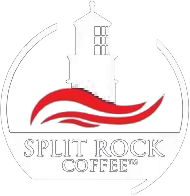Article: Coffee and Health
Coffee and Health
Unlocking the Secrets of Split Rock Coffee for a Healthier Morning Routine
Free-Radical Fighter
While you may drink coffee primarily for caffeine, it’s important to note that coffee is rich in antioxidants. One cup has between 200 to 550 milligrams of antioxidants, including chlorogenic acid, which aids your body in processing fat and sugar. Antioxidants help lower inflammation, reduce the risk of chronic diseases, and stabilize free radicals. Both Robusta and Arabica beans offer similar antioxidant levels after roasting, but light roasts typically have more than dark roasts.
Hot Brew vs. Cold Brew
If your goal is to maximize antioxidants, opt for hot-brewed coffee, as the heat is essential for extracting antioxidants from the beans. However, if you want a stronger caffeine kick, cold brew is the way to go. It also has lower acidity, making it a better choice for individuals with acid reflux.
The Perfect Cup
The healthiest way to enjoy coffee is hot-brewed and black. A single cup offers virtually no calories or carbs, no fat, and is low in sodium. Additionally, black coffee has micronutrients such as potassium, magnesium, and niacin.
Coffee Don't: Excessive Sugar
Coffee starts as a healthy beverage, but adding sugar and flavored sweeteners increases fat, calories, and the risk of heart disease. Aim for 1 teaspoon of sugar or less per cup, staying within the 6 teaspoons (for women) or 9 teaspoons (for men) recommended daily by the American Heart Association. In coffee shops, one pump of flavoring usually has about one teaspoon of sugar. At home, consider flavoring your coffee with vanilla or almond extract.
Coffee Don't: Overdoing Dairy
Milky coffee drinks often have sweetened condensed milk, heavy whipping cream, or whole milk, which contribute excessive fat and calories. For instance, just one ounce of heavy whipping cream adds over 100 calories. Instead, consider alternatives like whole milk (19 calories per ounce), fat-free milk (10 calories per ounce), or unsweetened almond or soy milk.
Coffee Don't: Bigger Is Not Always Better
If your goal is to avoid excess fat and calories, choose a small cup instead of a large one. It’s fine to indulge in a flavored latte or seasonal sweetened drink occasionally, especially if you select the smallest size to save on calories, sugar, and fat.
opt for Organic
Coffee beans are among the most heavily sprayed crops globally. While many pesticides are removed during washing or roasting, not all are eliminated. Look for an organic certification seal on coffee packaging and for the word “organic” on menu options at coffee shops.
Healthy or Hype: Turmeric Coffee
Healthy. Turmeric has curcuminoids, which are anti-inflammatory compounds that may positively affect diabetes and cancer. You can add turmeric to hot black coffee, but avoid sugar, syrup, or heavy creamers that can add unnecessary fat and calories.
Healthy or Hype: Egg Coffee
Hype. Known as Vietnamese or Swedish coffee, egg coffee is made by beating egg yolk with sweetened condensed milk before adding it to espresso or iced coffee. Sweetened condensed milk is high in sugar, and raw eggs can pose a risk of salmonella, which causes about 1.35 million infections annually.
Healthy or Hype: Mushroom Coffee
Healthy. Mushroom coffee is a blend of regular coffee and mushroom extract, usually derived from lion’s mane, chaga, cordyceps, or rishi mushrooms. It has less caffeine and is packed with inflammation-reducing antioxidants. Just make sure not to add excessive sugar and cream, as more research is needed to support all health claims, such as immune system enhancement.
Healthy or Hype: Nootropic Coffee
Healthy unless you are sensitive to stimulants. Nootropics, often referred to as smart drugs, include compounds that can enhance memory, creativity, motivation, and attention. Since caffeine is a nootropic itself, coffee naturally falls into this category. However, be cautious with any nootropic coffee products, as they may have various stimulants beyond caffeine. The FDA does not regulate nootropics, making it difficult to verify their claims or confirm the presence of these compounds.
Healthy or Hype: Vitamin Coffee
Hype. Adding vitamins to coffee might seem beneficial, but coffee’s diuretic effects cause you to lose water-soluble nutrients before they can be absorbed. Additionally, coffee can hinder the absorption of essential minerals like zinc, calcium, and iron. It’s advisable to take your vitamins an hour before or after drinking coffee.
Healthy or Hype: Concentrated Coffee
Concentrated coffee is essentially a stronger version of regular coffee that you mix with water or milk. It’s commonly used to prepare large quantities of coffee but be mindful of serving sizes as it contains a significant amount of caffeine.
Split Rock Coffee offers various health benefits and considerations depending on how it is prepared and consumed.
- Antioxidant Content: Coffee is rich in antioxidants, including chlorogenic acid, which help lower inflammation, reduce the risk of chronic diseases, and stabilize free radicals. Light roasts generally contain more antioxidants than dark roasts.
- Brewing Methods: Hot-brewed coffee maximizes antioxidant extraction, while cold brew offers a stronger caffeine kick and lower acidity, making it suitable for individuals with acid reflux.
- Healthiest Consumption: The healthiest way to enjoy coffee is hot-brewed and black, as it is low in calories, carbs, fat, and sodium, and has micronutrients like potassium, magnesium, and niacin.
Unhealthy Additions: Adding excessive sugar, sweetened condensed milk, or heavy cream to coffee increases fat, calories, and the risk of heart disease. Alternatives like whole milk, fat-free milk, or unsweetened almond or soy milk are recommended.



